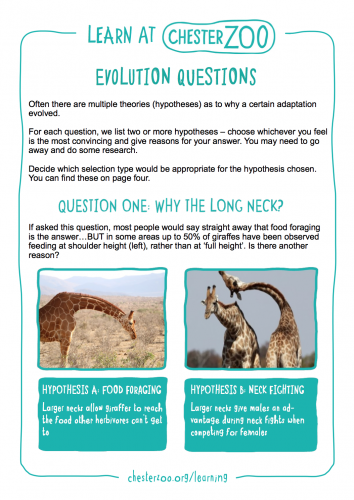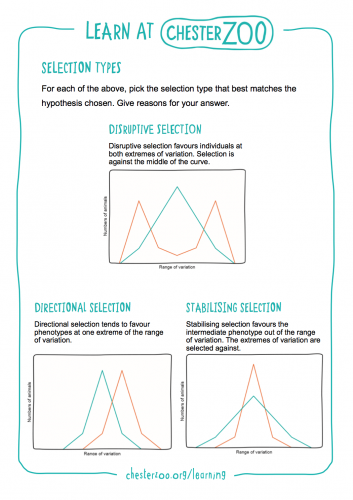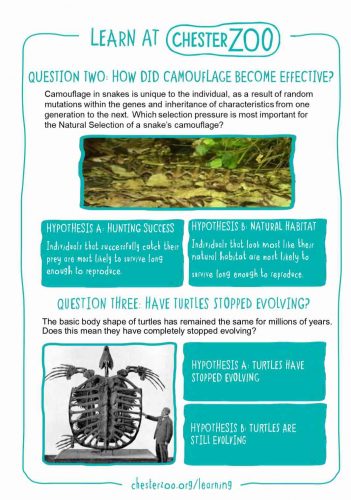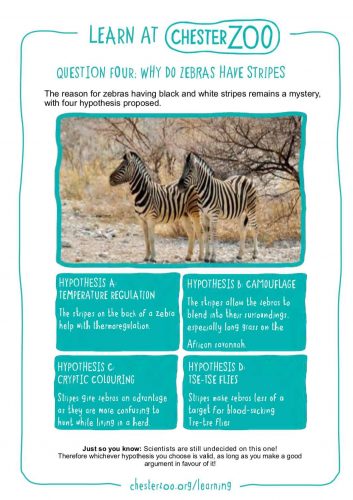16+
Subject
- Science
POST-16 EVOLUTION QUESTIONS
Really useful if you’ve booked on to our Post-16 Evolution Workshop to use after your visit to refresh your pupils’ knowledge.
This resource helps to revise knowledge about evolution and explore and discuss various hypotheses related to the evolution of species.
Questions include:
- Why the long neck?
- How did camouflage become effective?
- Have turtles stopped evolving?
- Why do zebras have stripes?




Curriculum Links
Science
4.4.
Random mutation can result in new alleles of a gene.
Many mutations are harmful but, in certain environments, the new allele of a gene might benefit its possessor, leading to increased reproductive success.
The advantageous allele is inherited by members of the next generation.
As a result, over many generations, the new allele increases in frequency in the population.
3.7.3
Individuals within a population of a species may show a wide range of variation in phenotype. This is due to genetic and environmental factors. The primary source of genetic variation is mutation. Meiosis and the random fertilisation of gametes during sexual reproduction produce further genetic variation. Predation, disease and competition for the means of survival result in differential survival and reproduction, ie natural selection.
Those organisms with phenotypes providing selective advantages are likely to produce more offspring and pass on their favourable alleles to the next generation. The effect of this differential reproductive success on the allele frequencies within a gene pool.
The effects of stabilising, directional and disruptive selection.
Evolution as a change in the allele frequencies in a population.
Reproductive separation of two populations can result in the accumulation of difference in their gene pools. New species arise when these genetic differences lead to an inability of members of the populations to interbreed and produce fertile offspring. In this way, new species arise from existing species.
Allopatric and sympatric speciation. The importance of genetic drift in causing changes in allele frequency in small populations.
Works well with our other learning resource – Post-16 Evolution Glossary